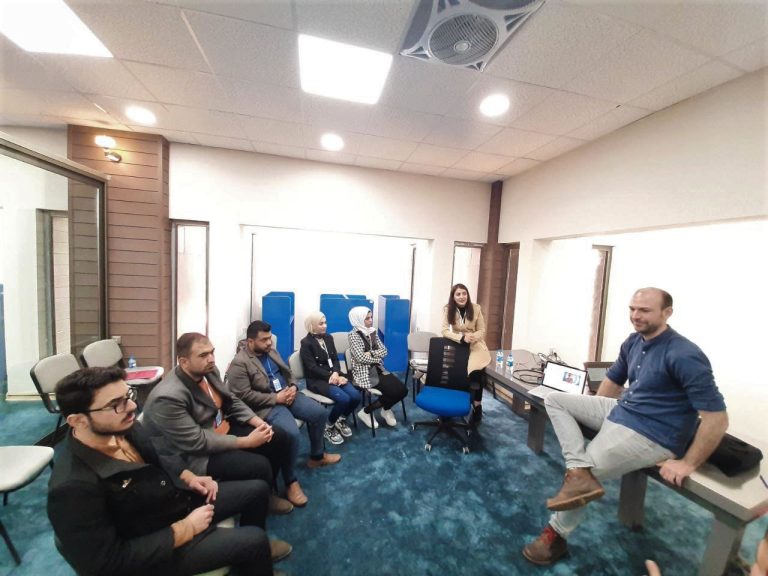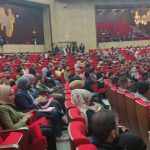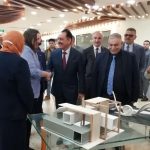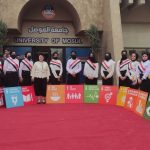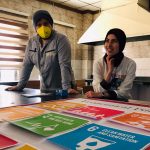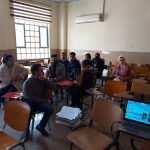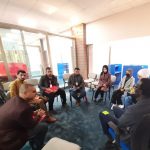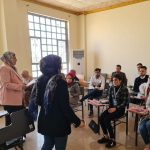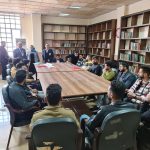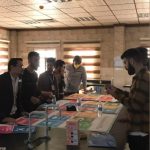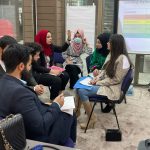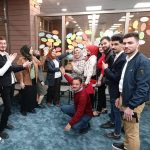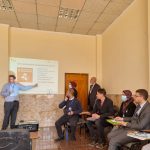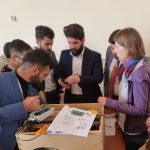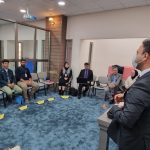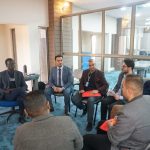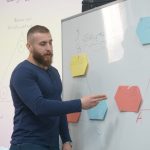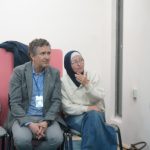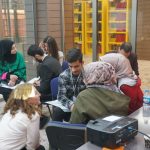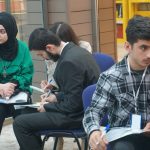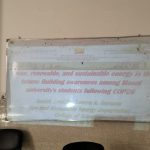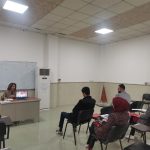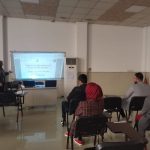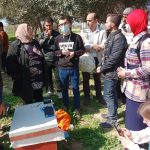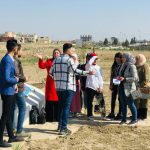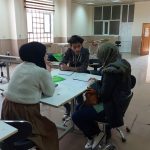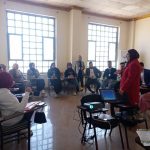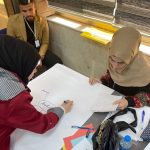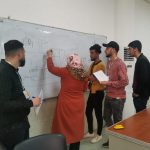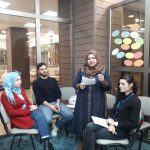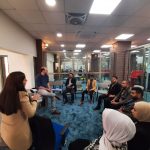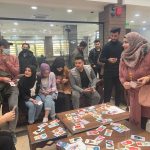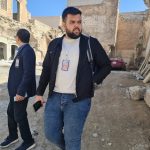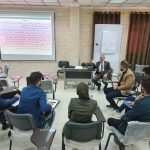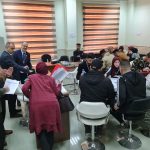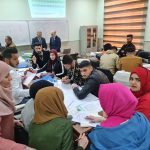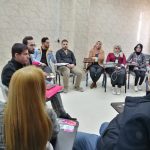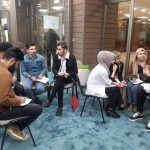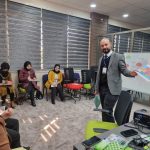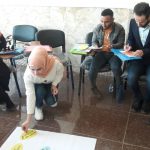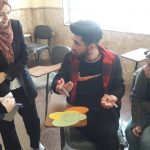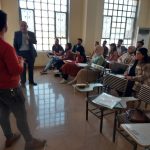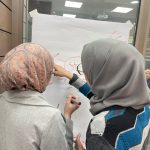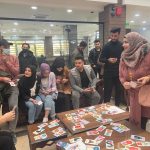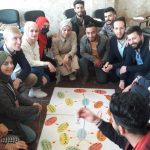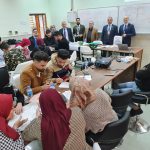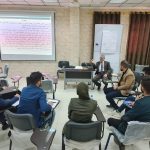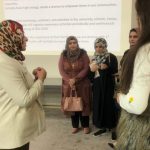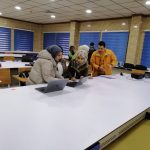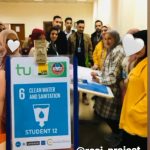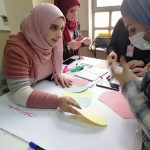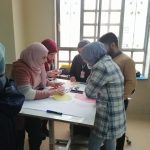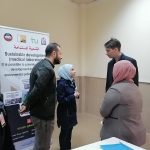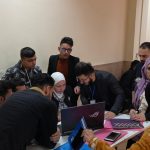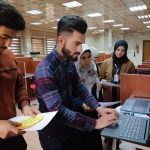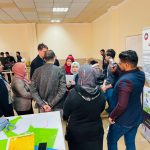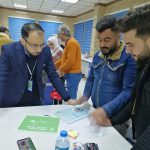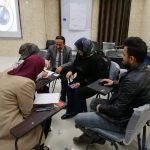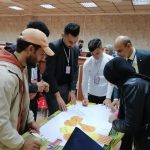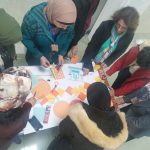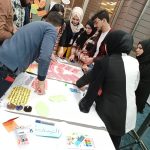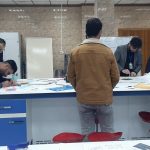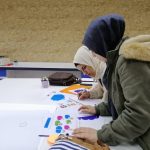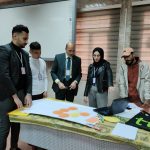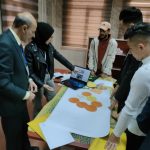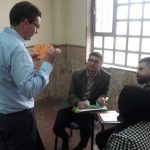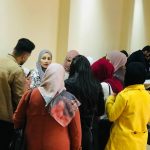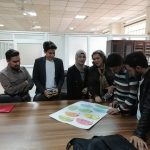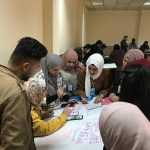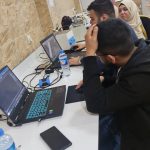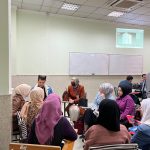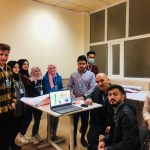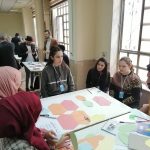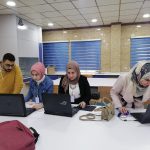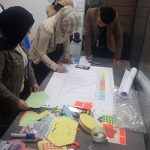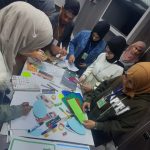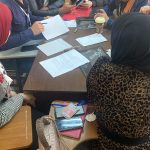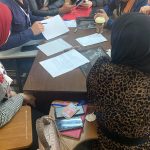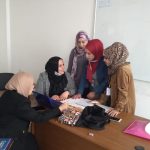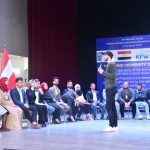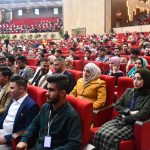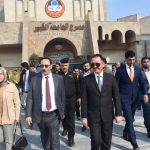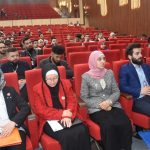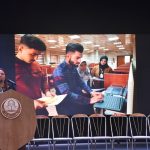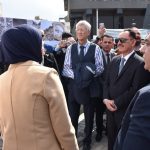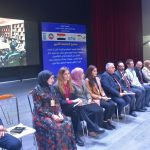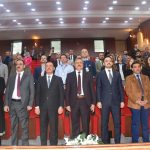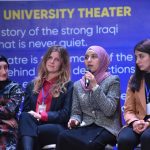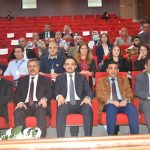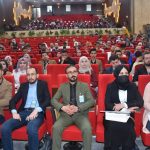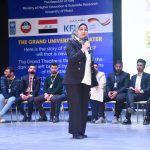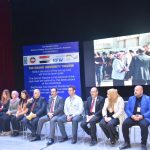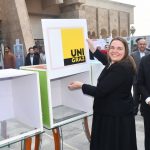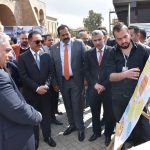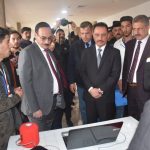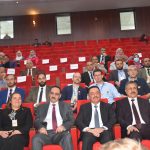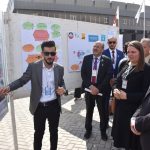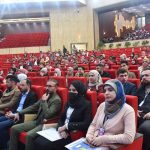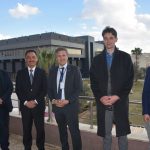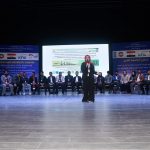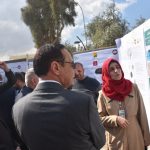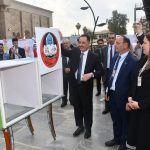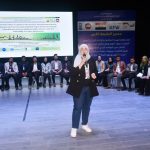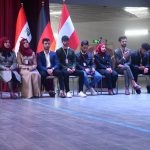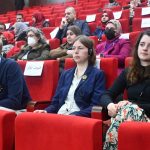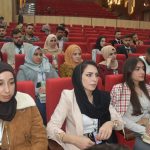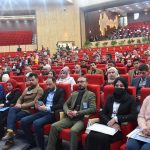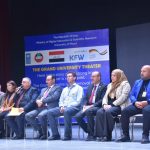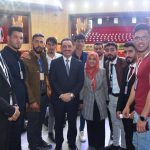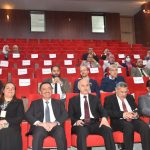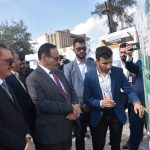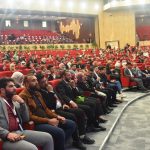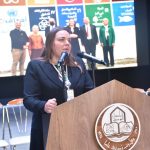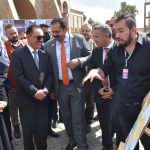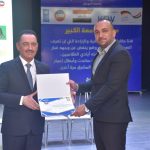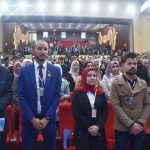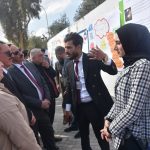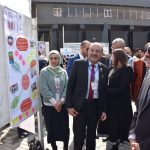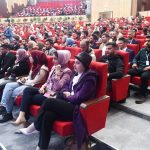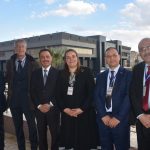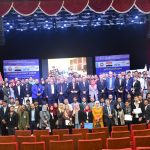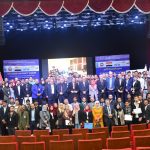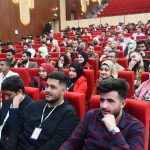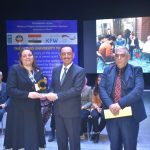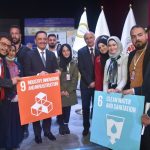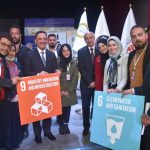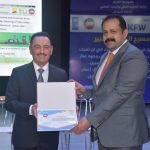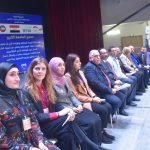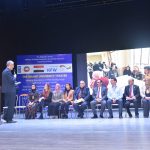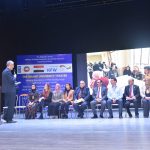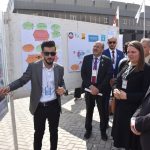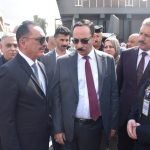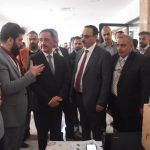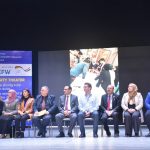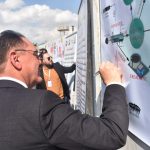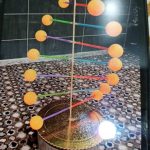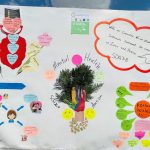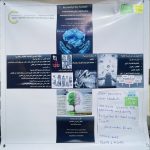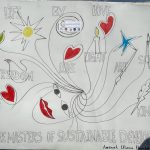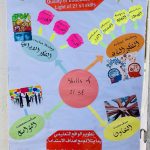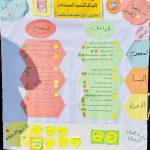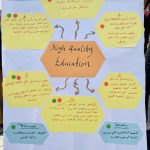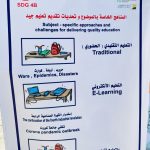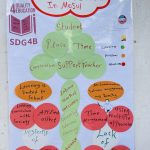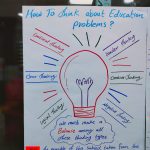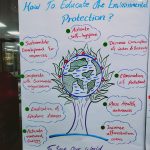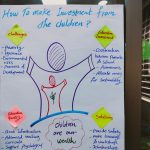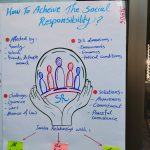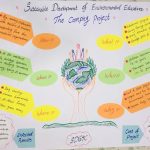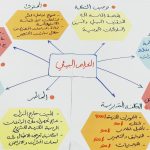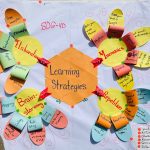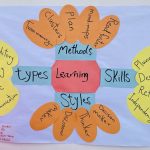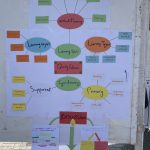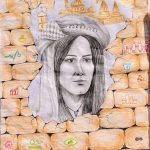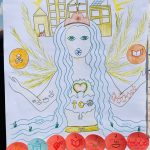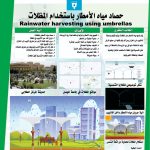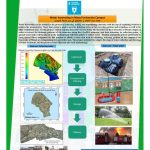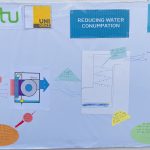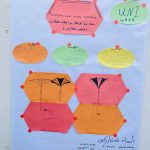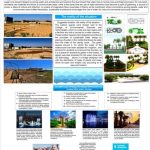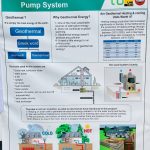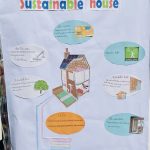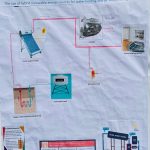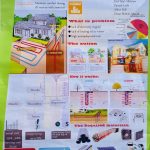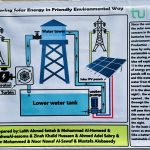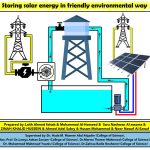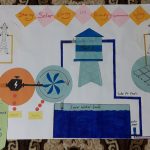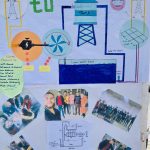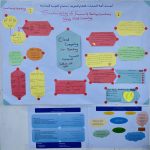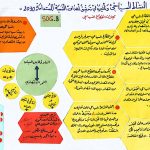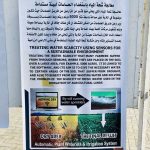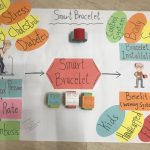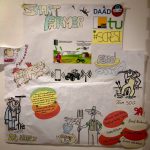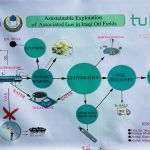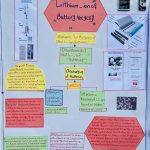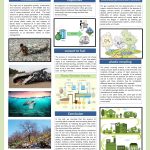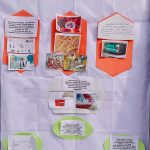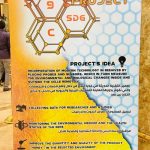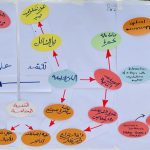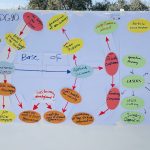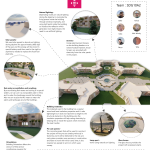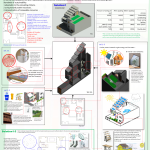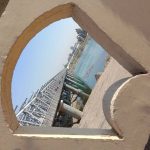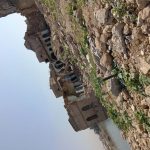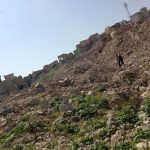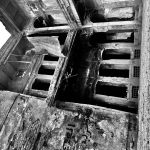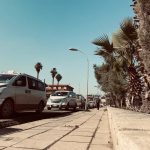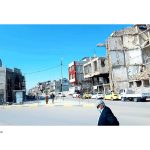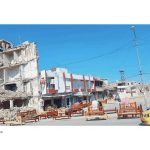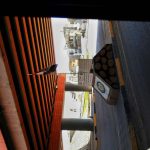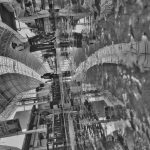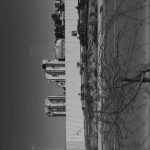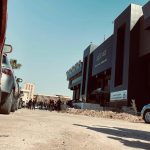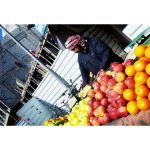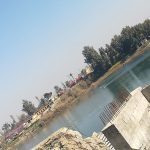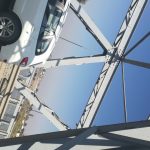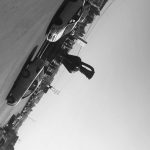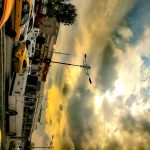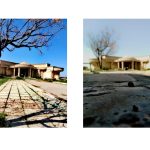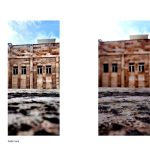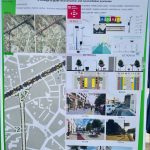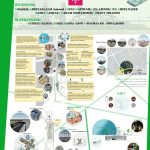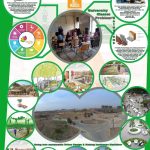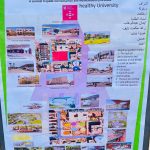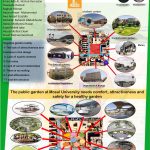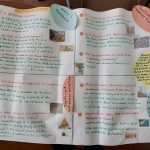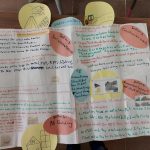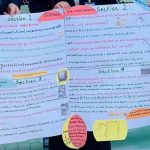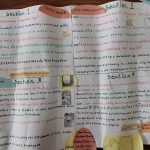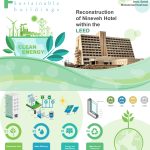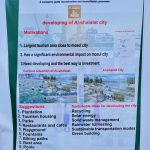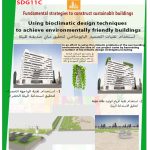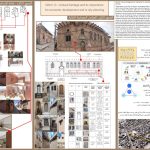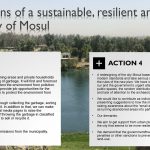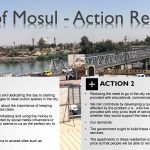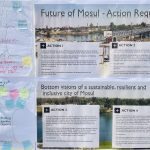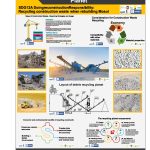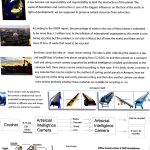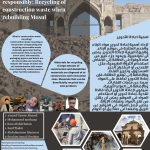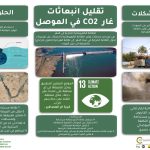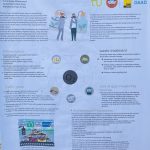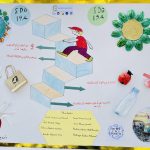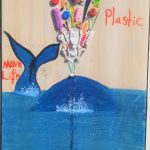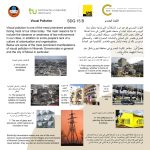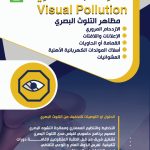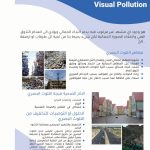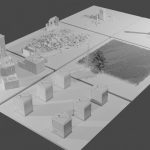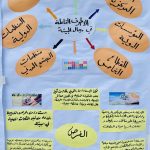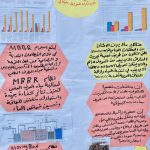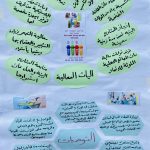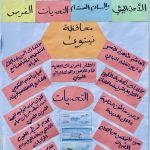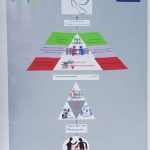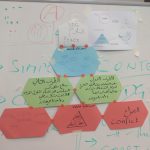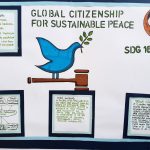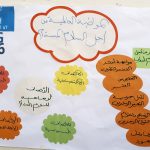Results and Pictures
Videos on University and local media
Short report from Media Department @UOM
Short report from Media Department @UOM
Short report from Media Central Library @UOM
A side from Grand University Theatre Hall@UOM
Live stream of the conference
RESI on Local Media News
Short report from Media
Channel @Alhurra Iraq – الحرة عراق

Keynote 1 Presentation:
Sustainable Development Goals – Role of Education in achieving them (Santosh Khatri, Chief of Education, UNESCO Iraq).
Download here
Greetings from Hanna Neumann, MEP European Parliament
Greetings from H.E. Baker Fattah Hussen, Iraqi Ambassador Vienna
Students Posters
Our Workshop: SDG1A - Towards no poverty in Iraq: Exploring potentials of sustainable development
What was the workshop about?
With SDG 1, the United Nations calls for a substantial reduction of humans living in poverty by 2030. As one measure in order to achieve this target they call for appropriate social protection systems to be implemented on a global scale. Students in workshop SDG1 discussed reasons that might especially in Iraq eventually increase the level of poverty, such as population growth, economic problems and a large proportion of unemployed, particularly among the young people. They developed quote some ideas ranging from a women’s association for economic empowerment, an app to access health care, cost-efficient energy production to sustainable use of resources.
Who was involved?
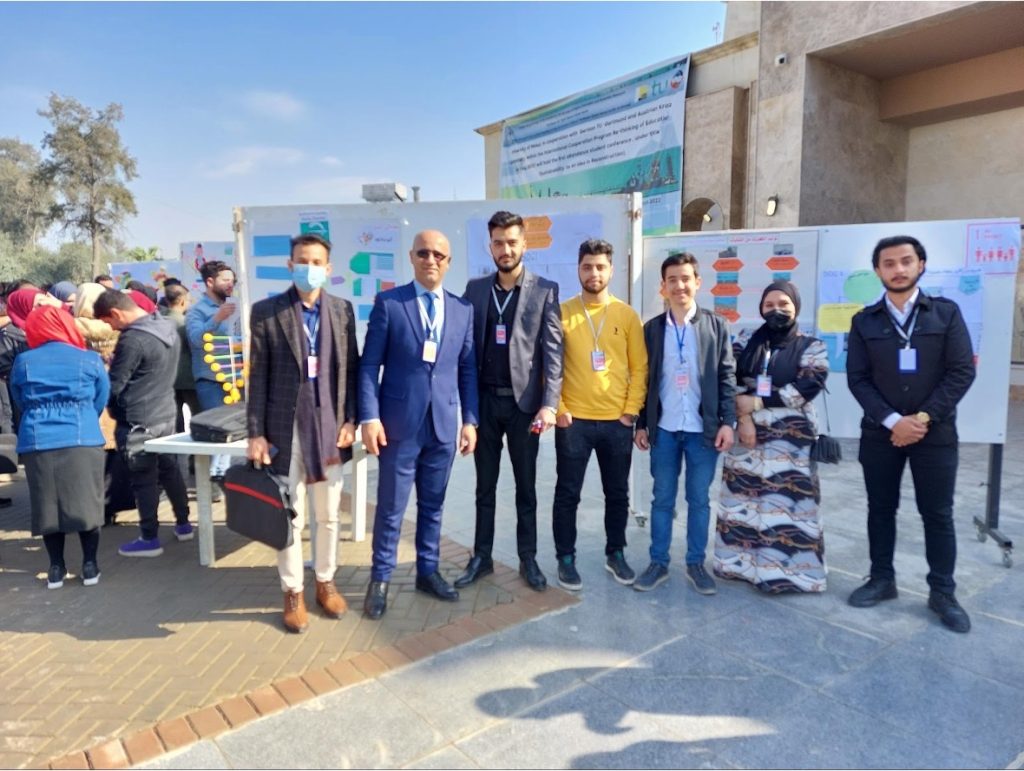
What came out?
Our Workshop: SDG3A - Women's Health: Researching genital tract infections
What was the workshop about?
By 2030, United Nations aims to ensure universal access to sexual and reproductive health-care services. Students in workshop SDG3A looked into women’s health and studied how certain bacteria may cause genital tract infections. Such genital tract infections may either be caused by an overgrowth of endogenous microorganisms normally found in the vagina (bacterial vaginosis) or introduced from the outside during sexual contact or contamination. They explored new methods for diagnosis of such bacteria as well as their prevention and treatment.
Who was involved?
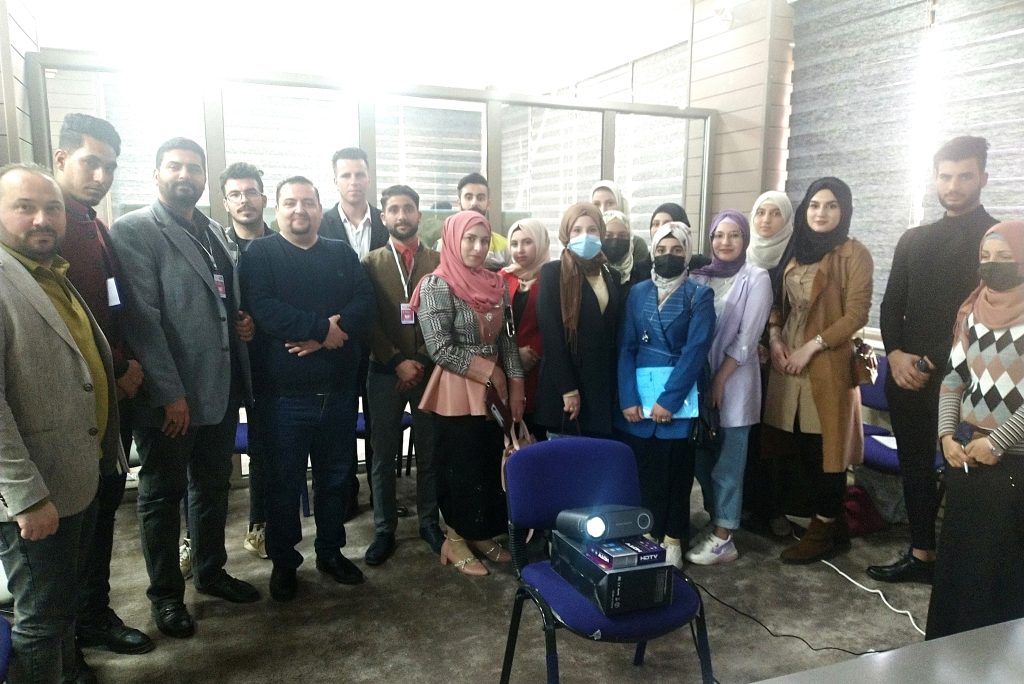
What came out?
Our Workshop: SDG3B - Stay healthy! Stay focussed! Understanding the relationship between student’s mental health and academic achievement
What was the workshop about?
Meeting the targets of United Nations SDG 3 includes that mental health and wellbeing of all humans should be promoted. For academics and students, the connection between mental health and academic achievement is of major importance. Students in Mosul are Masters in resilience, as war-related traumas and pandemic-caused distance learning have affected many. Students in workshop SDG3B discussed the importance of motivation, optimism and self-confidence to be crucial in facilitating successful learning processes and how awareness, counselling, solid peer-relationships and learning strategies may become a support system to help through difficult times and reduce anxieties.
Who was involved?
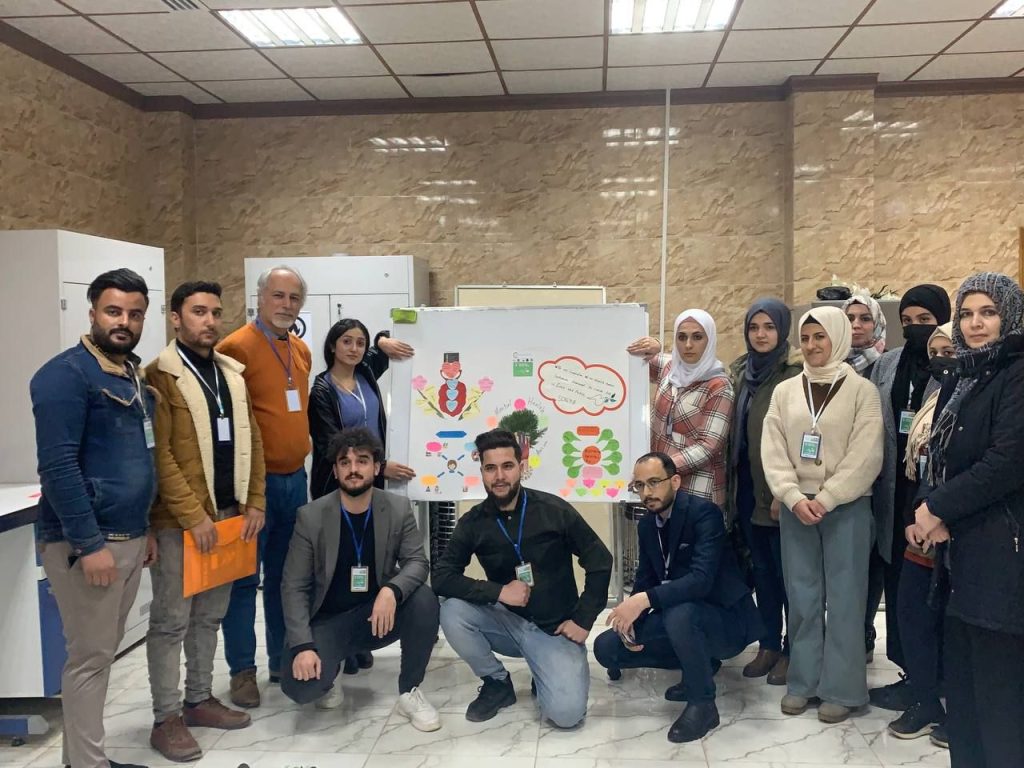
What came out?
Our Workshop: SDG4A - Teaching methods for delivering high quality and inclusive education
What was the workshop about?
4Cs to improve Quality Education in Mosul Students in workshop SDG4A discussed how to transform educational realities in Mosul in line with the sustainable development goals. Apart from reduced teaching hours due to lack of schools and platooning and large classroom sizes, they identified an outdated curriculum as a major challenge. They reflected that the framework of the 21st Century Skills is helpful to think further on what are the competences that need to be promoted to achieve Quality Education. The propose 4Cs to be strengthened:
Critical thinking
Creative thinking
Communication
Cooperation
Who was involved?
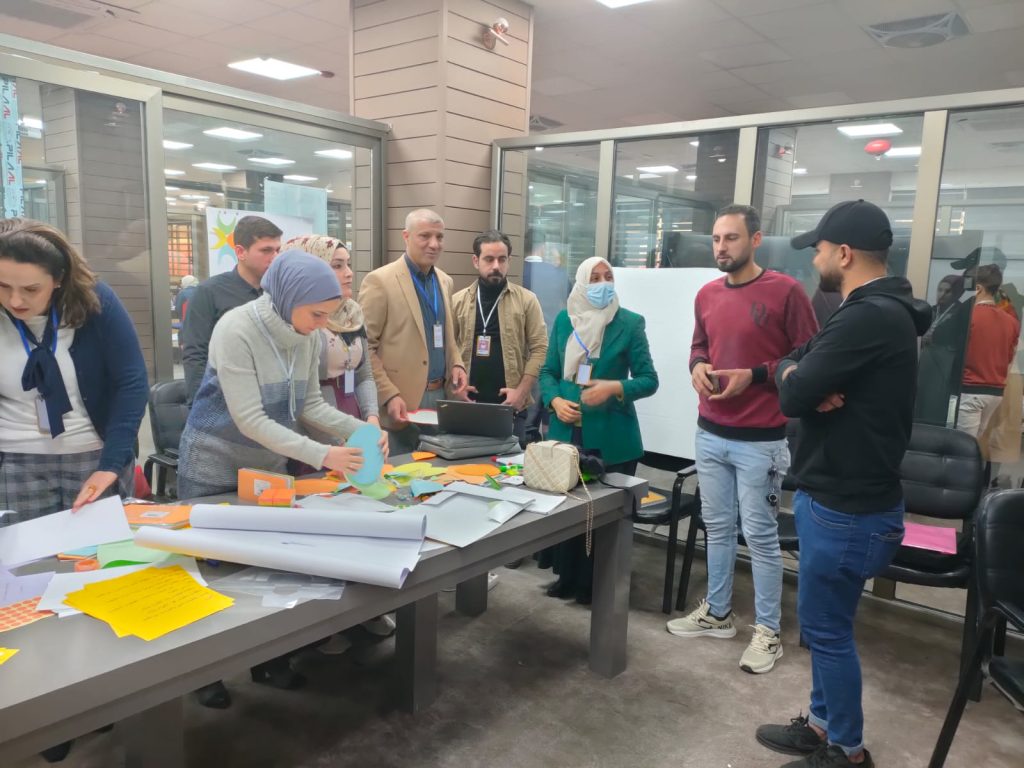
What came out?
Our Workshop: SDG4B - Subject-specific approaches and challenges for delivering quality education
What was the workshop about?
SDG 4 issued by the United Nations calls for effective learning environments for all students. What this means however might differ in parts from one subject to another. Students in workshop SDG4B reflected on what might be subject-specific approaches and challenges for achieving educational quality and what to learn from that for the teaching profession in general. The identified enhancing opportunities for learning outside of schools as an important strategy. Improving or developing teacher-parent relationships is crucial.
Who was involved?
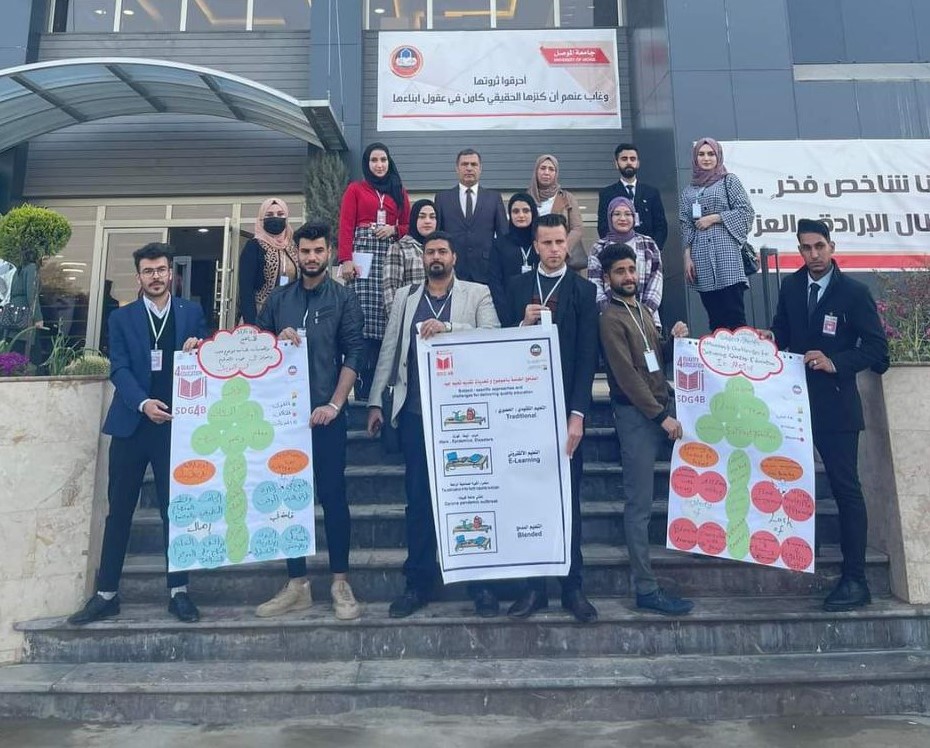
What came out?
Our Workshop: SDG4C - Education for sustainable development in Mosul: Approaches and perspectives
What was the workshop about?
United Nations SDG 4 calls for education for sustainable development, including the promotion of human rights, global citizenship and the appreciation of cultural diversity. In workshop SDG4C, students discussed approaches, which might be helpful to enhance competencies and attitudes of children and youth. As key questions, they asked: Why is investing in education important? How to think about educational problems? How to educate for social responsibility? How about educating for environmental protection? As a specific idea, they propose camps for children as a useful offering to enhance opportunities for education for sustainable development in Mosul.
Who was involved?
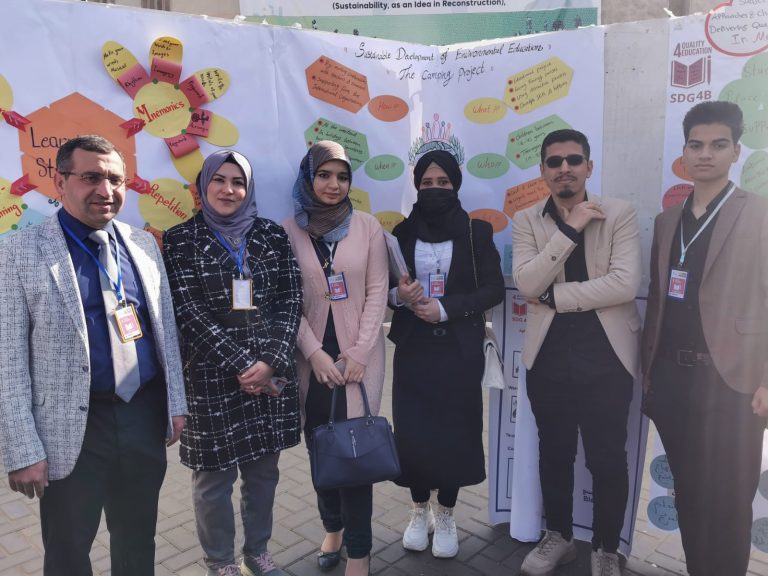
What came out?
Our Workshop: SDG4D - Learning our way out (Hybrid)
What was the workshop about?
Workshop SDG4D was about learning methods and learning strategies. Students reflected on their own learning methods and learning strategies and got to know their own learning type. In the hybrid sessions, the students were also introduced to other learning methods like the loci-method and tested these in small groups. For example, one of the learning methods was brainstorming and mind mapping, which was then taken up by the students as an idea for the poster. Since reflection is an important part of a learning process, brainstorming and mind mapping was used to reflect and present the things the students learned about learning. According to students, in order to implement these strategies and methods, exams and courses must change. They often fail to keep the learning aim in mind, as this is often not stated and students therefore do not know why they are learning. Another change they described is exams, as learning strategies are often difficult to use, as exams are also not announced until three days before. This needs to be implemented in early educational institutions up to the university level in order to get a little closer to reaching SDG 4.
Who was involved?
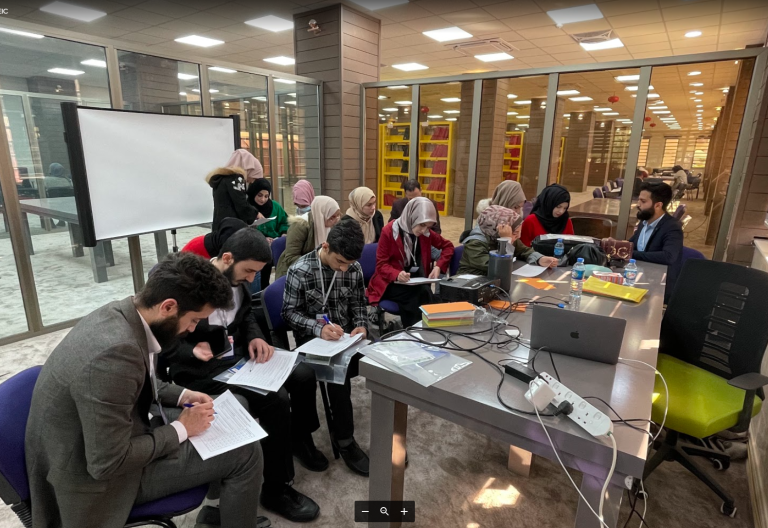
What came out?
Our Workshop: SDG5A - Woman power for sustainability
What was the workshop about?
How to achieve gender quality was the topic of discussion of workshop SDG5A. Students stressed the importance of giving women equal rights to land and property, access to sexual and reproductive health, technology and the internet. They also point out the need to empower females to become leaders in different fields of society. Students from minorities should be especially supported. They also point out the need for the support of grassroots organization and valuing cooperation over competition: “Females have high motivation and need a chance to empower themselves in our communities.”. They choose art as their medium of expression.
Who was involved?
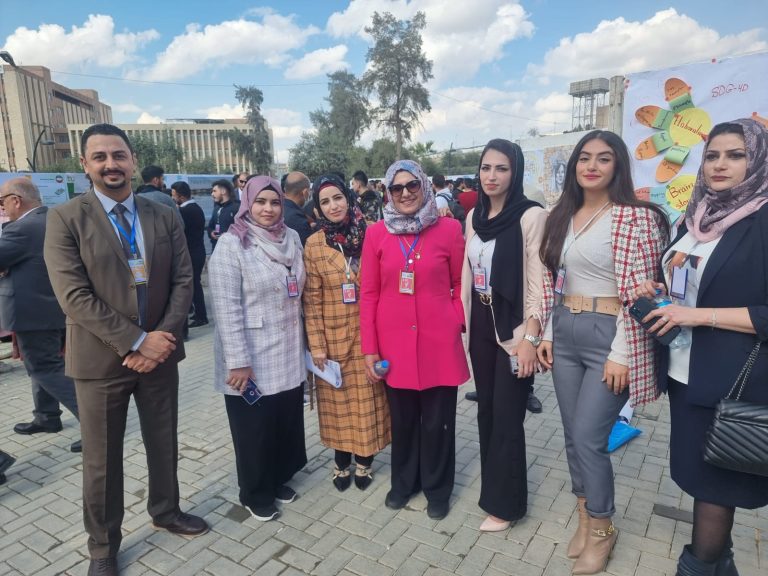
What came out?
Our Workshop: SDG6A - Sustainable water-management: Securing water supply for future generations
What was the workshop about?
Climate change in Iraq is resulting in effects (e.g. Rising temperatures, intense droughts, declining precipitation, desertification, salinization, and the increasing prevalence of dust storms), that are making Iraq’s environmental, security, political, and economic challenges worse. Achieving water security has become a major challenge for the countries of the world, including Iraq, which requires thinking about re-developing new strategies for water management in the region. Students in workshop SDG6A developed ideas on how rainwater harvesting on Mosul University Campus could be a strategy to make a difference.
Who was involved?
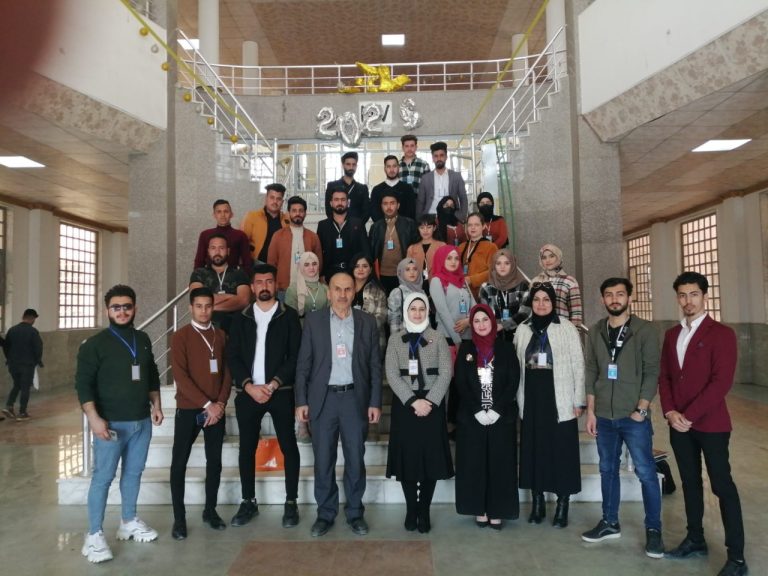
What came out?
Our Workshop: SDG6B - Sustainable architectural water design for buildings
What was the workshop about?
SDG 6 points out the role of local communities in improving their water management. Students in workshop SDG6B explored architectural designs with regard to the dual impact that water has on human lives and the environment, as water elements could serve as points of gathering, a source of power, a place of culture and reflection, or a place of imagination. Using the space around Mosul University College of Environmental Sciences as an example, they propose various ideas and strategies for ethical and sustainable water use on campus.
Who was involved?
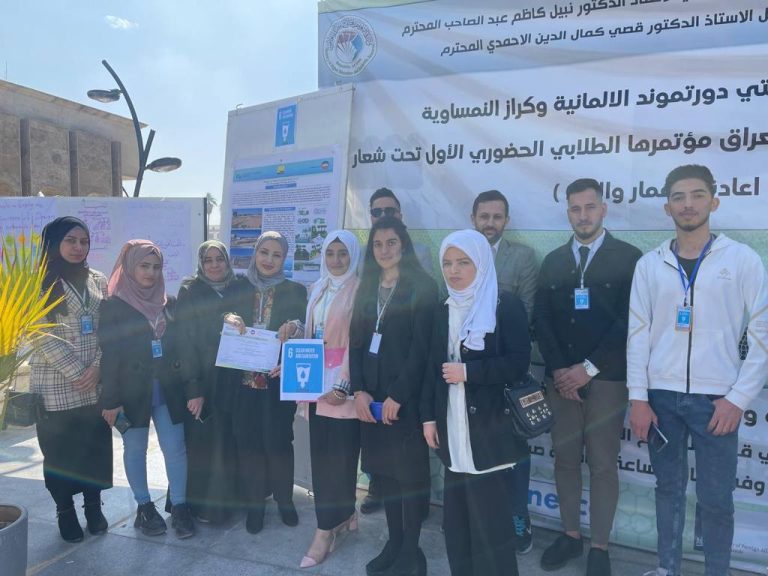
What came out?
Our Workshop: SDG7A - Clean energy for Mosul: Renewable energy and energy efficient building as key technologies for a “powerful” future
What was the workshop about?
Students in workshop SDG7A discussed how renewable energies and energy efficient building as key technologies can contribute to a cleaner reconstruction of Mosul. They discussed the importance of raising awareness for renewable energy and energy efficiency (REEE) as well as scientific and technological foundations of renewable energy such as solar power and energy-efficient building. Together they developed an idea for a sustainable cooling and heating system, which could be applied in Mosul.
Who was involved?
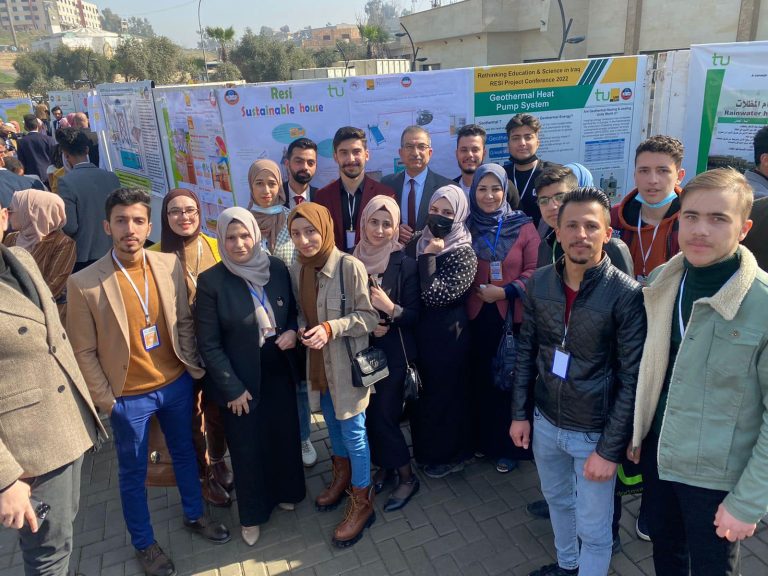
What came out?
Our Workshop: SDG7B - Clean and renewable energy is the future: Awareness raising for a sustainable energy provision
What was the workshop about?
In SDG 7, it is stated that the share of renewable energy in the global energy mix, has to be substantially increased. Students in workshop SDG07B developed an idea for a decentralised electrical power generating system, so that it can serve rural areas or small projects that need a continuous electrical supply 24/7. The system includes a closed water circuit that is capable of operating electricity-generating turbine. A turbine, generator, solar cells to raise the water during the day and large-capacity reservoir is needed.
Who was involved?
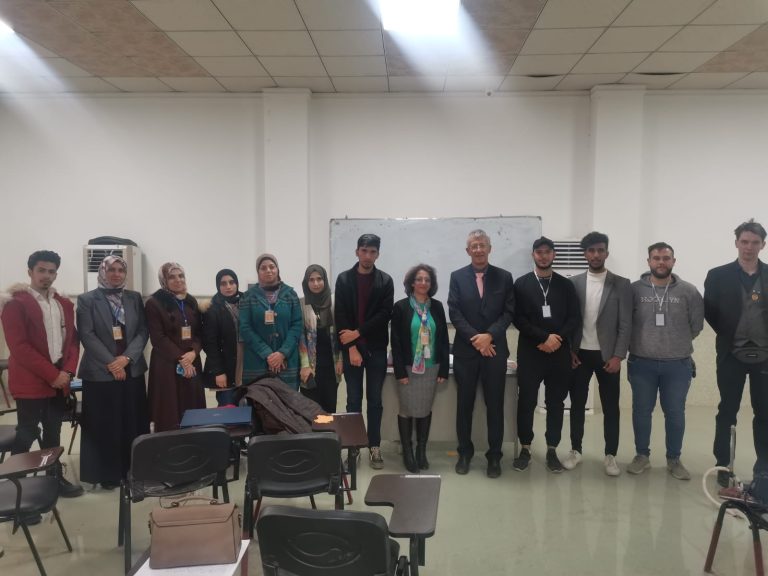
What came out?
Our Workshop: SDG8A - Economic development in Ninewah and Iraq: A multi-perspective assessment
What was the workshop about?
Students in workshop SDG8A discussed issues related to sustainable economic development and the role that key actors – including the government, the banking system and private companies – may play in this regard from various perspectives. They propose reactivating the tourism sector as a chance for sustainable economic development in Mosul and the region. Supportive policies and opportunities for small and big credits were identified as crucial factor to unleash entrepreneurship potential. Sustainability was also reflected in the way the finance sector works. The cloud computing is proposed as an environmental solution for banks institutions, reducing the need for commuting and therefore decreasing emissions. In addition is more efficient and resilient than local computing capacity, offers geographic redundancy, making data loss unlikely even in the event of a natural disaster, a major enabler of both home and remote working.
Who was involved?
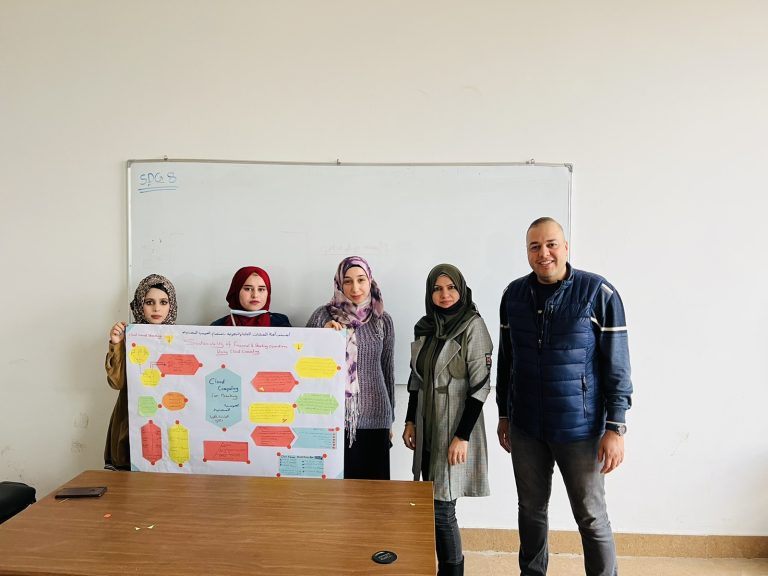
What came out?
Our Workshop: SDG9A - Technological innovations to benefit the environment
What was the workshop about?
Smarter, better and greener? Workshop SDG9A discussed how technological innovations can benefit society and what needs to be done to ensure the enhanced adoption of clean and environmentally in technological and industrial processes. Students propose: Encouraging investment while providing the appropriate environment for investment in sustainable development techniques will contribute to solving many environmental and economic problems in various sectors, including the health and agricultural fields. In addition, the management and exploitation of associated petroleum gas in Iraq, fully meeting the industry’s demand for this resource, and refusing to import gas from abroad will be considered key strategies to create a clean, safe, and sustainable environment for the present and future generations.
Who was involved?
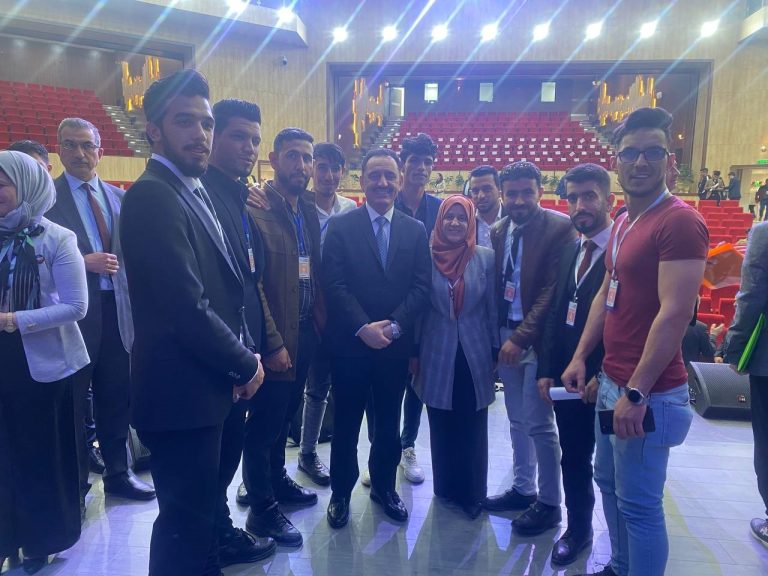
What came out?
Our Workshop: SDG9B - Reduce, reuse, recycle: Gateways to resource efficiency
What was the workshop about?
Discussing strategies to contribute to improving resource efficiency is what workshop SDG9B did. They explored how green computing as an energy-efficient information technology can be used in order to save natural resources. A focus was put on two ideas: 1. How plastic recycling can avoid potential dangers that are related to having too much plastic waste in the natural environment and alternative practices to recycling. 2. The recycling of batteries.
Who was involved?
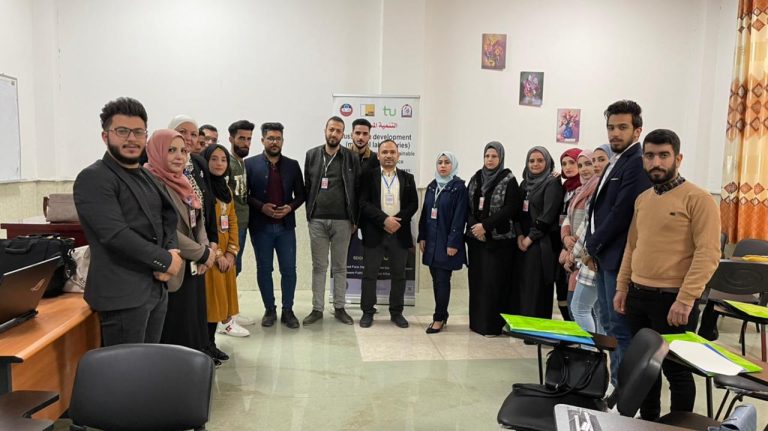
What came out?
Our Workshop: SDG9C - The role of smart technology in sustainable agriculture: Beekeeping as an example
What was the workshop about?
Healthy bees more honey! Meet workshop SDG9C. Students in this workshop also discussed how technological solutions can have a great potential in the implementation process of all SDGs. They took a more practical approach working on how smart sensor systems can be used in agriculture, specifically, beekeeping to predict the health- and development state of honeybee colonies. This can serve as early warning system can be implemented and potentially prevent the loss of honeybee colonies. After exploring, the technology sensors were built into the beehives inside Mosul University Campus. We are so excited to learn more about long-term results in the future.
Who was involved?
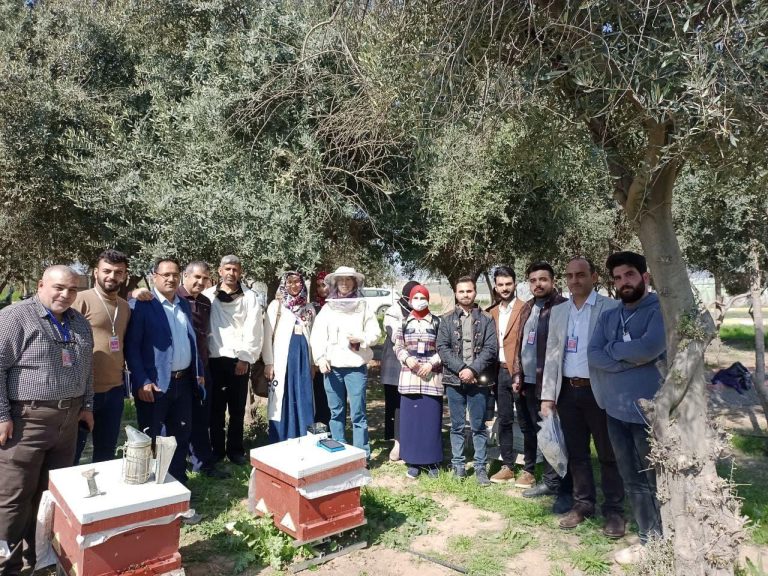
What came out?
Our Workshop: SDG9D - How fundamental science contributes to sustainable development
What was the workshop about?
How fundamental science contributes to sustainable development – this was the topic of discussion in workshop SDG9D. A necessary debate as a focus on applied sciences is also conceptualized in United Nations SDG 9, in which scientific research is directly linked to an upgrade of technological capabilities in the industrial sectors of all countries. This has direct implications as for example every year, billions of US-Dollars are invested by governments and industry companies around the globe into science, while at the same time funding for fundamental research keeps decreasing. In addition, it becomes more and more difficult to justify research in fundamental science, as results of this research do not offer an immediate and measurable short-term gain. Students in this workshop discussed the image problem of fundamental science these days, where performance and efficiency are the dominant and relevant measures. They also evaluated the benefit of fundamental science for global society in general and with practical examples.
Who was involved?
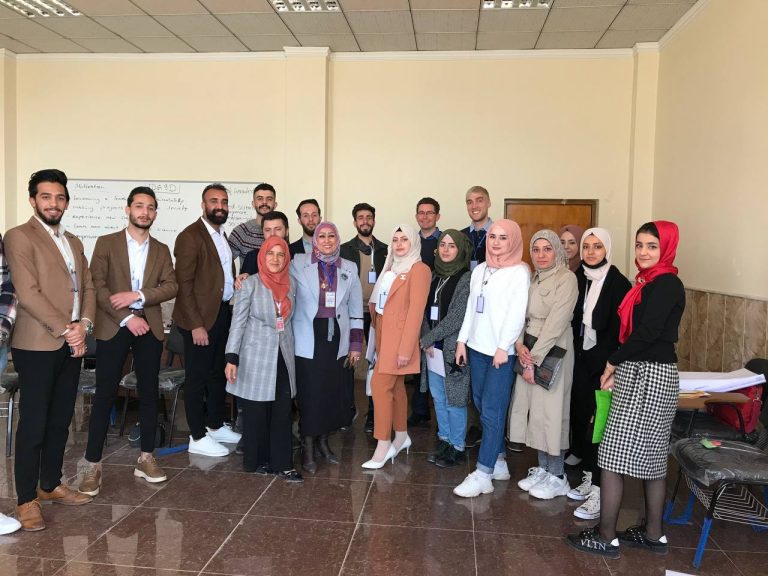
What came out?
Our Workshop: SDG10A - Living in Mosul: A question of social inclusion, human dignity and environmental awareness
What was the workshop about?
Having access to affordable housing is one of the most important basic needs of the population as housing is considered to ensure human dignity and social inclusion, especially for low-income residents. In Mosul, which is just recovering from ISIS-Occupation, affordable housing plays a decisive role in promoting post-conflict-reconciliation and reforming a community based on more equality. In workshop SDG10A “Living in Mosul: A question of social inclusion, human dignity and environmental awareness” discussed how to make housing in Mosul affordable and sustainable. See their ideas on for example the consideration of the use of natural light and ventilation as well as recycling processes for used water and building materials could make a difference.
Who was involved?
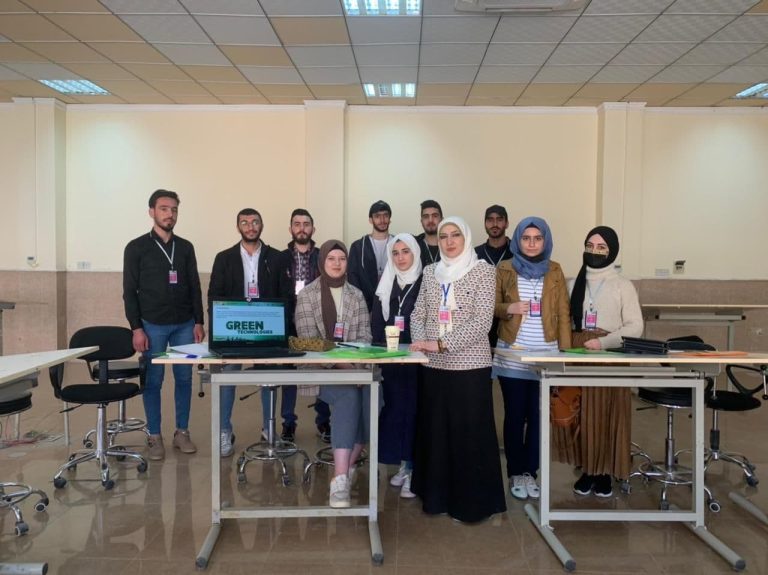
What came out?
Our Workshop: SDG10B - Making inequalities visible
What was the workshop about?
Inequalities are touching on many fields in our lives. Students in workshop SDG10B explored Mosul city and Mosul University campus capturing some place which best symbolize inequality-related issues. They conclude using art is a good way to make inequalities visible and creating awareness. See their exhibition in the pictures. Do you have a favourite?
Who was involved?
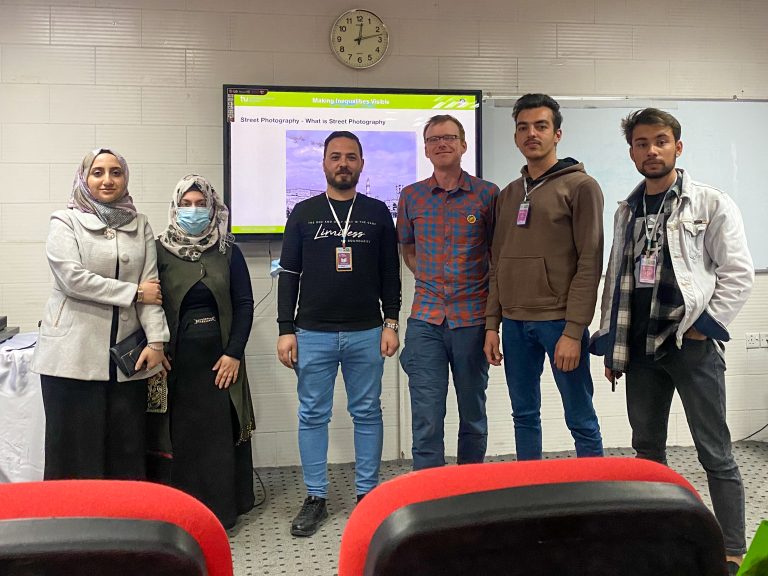
What came out?
Our Workshop: SDG10C - Transportation for Mosul: A gateway to more equality and environmental benefits
What was the workshop about?
Affordable, accessible and green transportation for Mosul! Everyone ever been to Mosul the last years knows the importance! Students in workshop SDG10C developed visions how to transform Mosul’s streets into multimodal transportation systems with several lanes for parking lots, bicycles, buses, vehicles, green belt, sidewalks and pedestrian paths may serve as basis also for a well-established public transport system, which then may contribute to an increased mobility for the economically disadvantaged.
Who was involved?
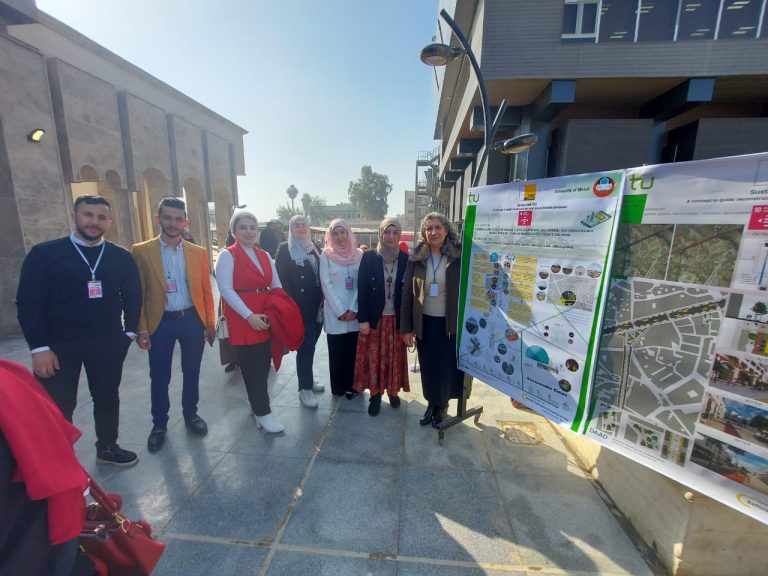
What came out?
Our Workshop: SDG11A - Towards a sustainable campus for University of Mosul
What was the workshop about?
Ideas for a sustainable Mosul University campus! Workshop SDG11A used University of Mosul campus as an example to discuss strategies to make urban spaces inclusive and sustainable. We love all the ideas proposed. From turning the university in a public garden, introducing sustainable transport to changing the whole teaching and learning environment.
Who was involved?
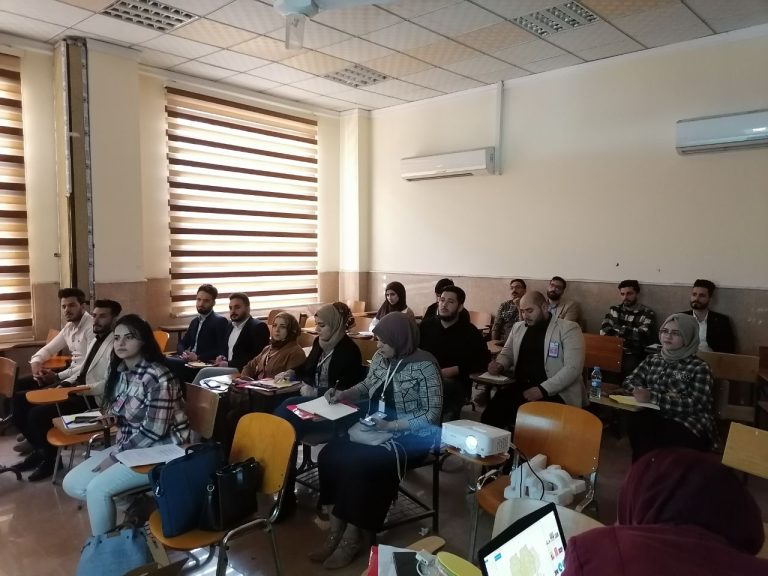
What came out?
Our Workshop: SDG11B - Rebuilding now for the Future
What was the workshop about?
Build back better! How to reconstruct sustainable was also the core question of workshop SDG11B. Students discussed most recent concepts of sustainable design, planning and operation using digital technologies with a specific focus on soil investigation, re-use of construction waste as well as life cycle assessment. They propose the following 4 aspects to be considered for reconstruction efforts in Mosul: 1. Build on expertise in geotechnical engineering, since construction projects interact with the ground (soils, rock); 2. Start with soil characterisation before construction! As an alternative to standard laboratory tests, insitu tests (namely cone penetration test) are recommended in a wide range of soils. In order to reduce investigation techniques in the future, investigations should be collected using GIS data bases; 3. Reuse construction waste from old Mosul for reconstruction. After breaking down the construction waste it can be a useful material for embankment construction (roads) or back-fillings; 4. Use ecologic alternatives (such as plants with strong roots) to stabilize slopes leading to an increased safety factor.
Who was involved?
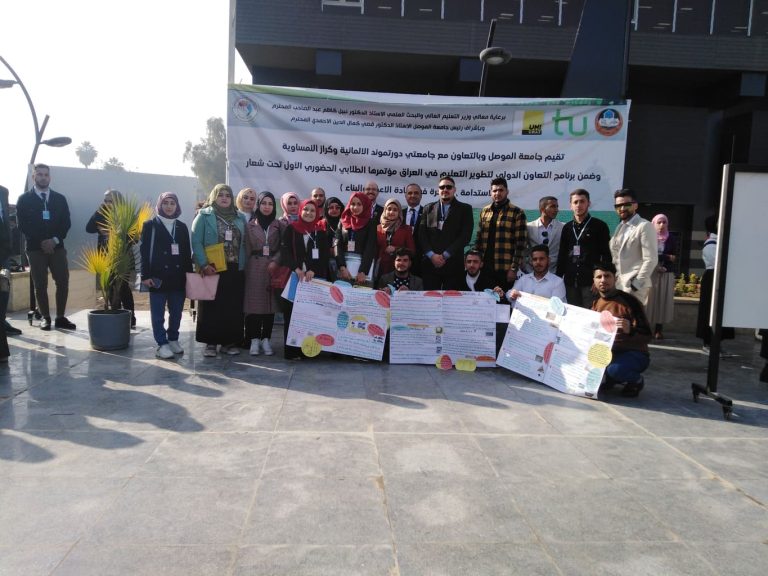
What came out?
Our Workshop: SDG11C - Fundamental strategies to construct sustainable buildings
What was the workshop about?
Let’s rebuild Mosul inclusive, safe, resilient and sustainable! Contributing to this was also the aim of workshop SDG11C. They discussed questions around how to construct sustainable buildings using modern planning and construction methods. See their ideas in the pictures on what sustainable building can mean in terms of the selection of a suitable construction site, the use of green construction materials as well as the use of green facades and locally available isolation materials for buildings.
Who was involved?
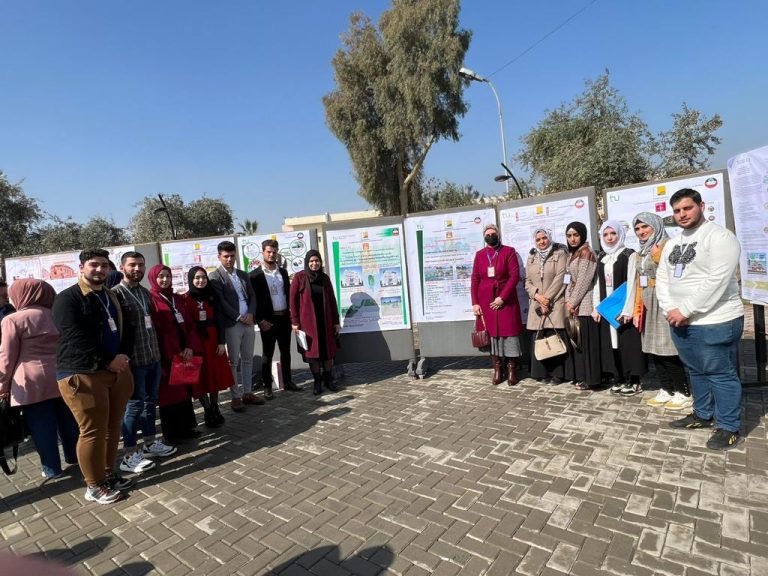
What came out?
Our Workshop: SDG11D - Cultural heritage and its importance for economic development and in city planning
What was the workshop about?
A call for preserving Mosul’s cultural heritage! Cultural heritage sites in Iraq in general, and in the old city of Mosul in particular, suffer from many challenges that impede their proper preservation. United Nations in their SDG 11 advise us to strengthen efforts to protect and safeguard the world’s cultural heritage. Students in workshop SDG11D discussed the potential of the Mosul architectural cultural heritage from various perspectives. They propose mechanisms of grouping heritage buildings within specific areas as a strategy to raise both the economic and social level of residential heritage areas in Mosul city and preserve the distinctive architectural characteristics of its buildings. They argue this will help to sustain life in the intended areas as well as increase the urban and cultural value of this area to become an attraction for visitors and tourists.
Who was involved?
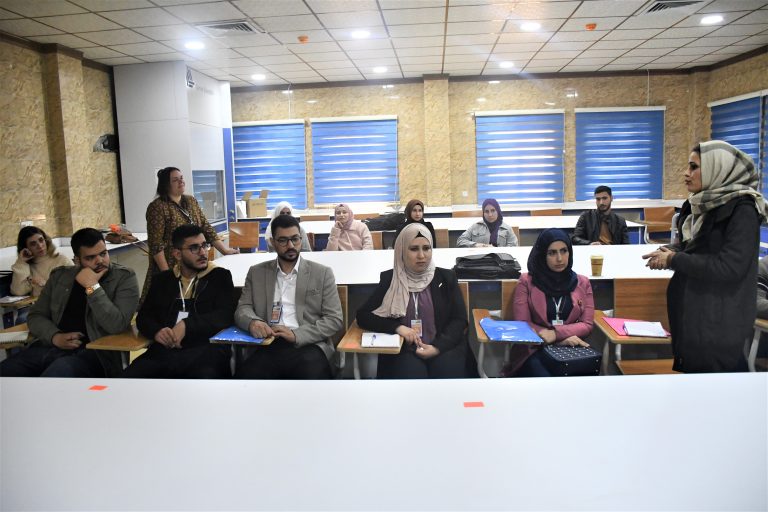
What came out?
Our Workshop: SDG11E - Bottom-up visions of a sustainable, resilient, and inclusive city of Mosul
What was the workshop about?
What should a sustainable, resilient and inclusive city of Mosul look like? In workshop SDG11E, students discussed this question with the SDG Ambassadors from Graz and Mosul. Together they considered various aspects and sub-goals of SDG 11, for example active environmental protection, living space, resilience and adaptation to environmental challenges, as well as transportation and public space. Based on this they came up with four main requests for action.
Who was involved?
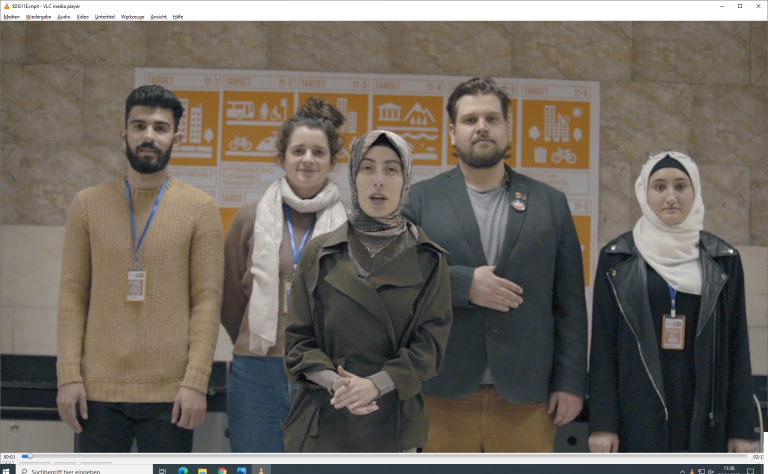
What came out?
Our Workshop: SDG12A - Doing reconstruction responsibly: Recycling of construction waste when rebuilding Mosul
What was the workshop about?
A call for responsible reconstruction!
During the war of 2014-2017, most if, the infrastructure was destroyed. Waste of destroyed houses and infrastructure is estimated to be more than 11 million tons.
UN calls for environmentally sound management of all wastes. The RESI workshop on SDG 12 developed several smart ideas on how construction and demolition materials could be recycled and used in road construction, reproducing concrete and other reconstruction projects.
Who was involved?
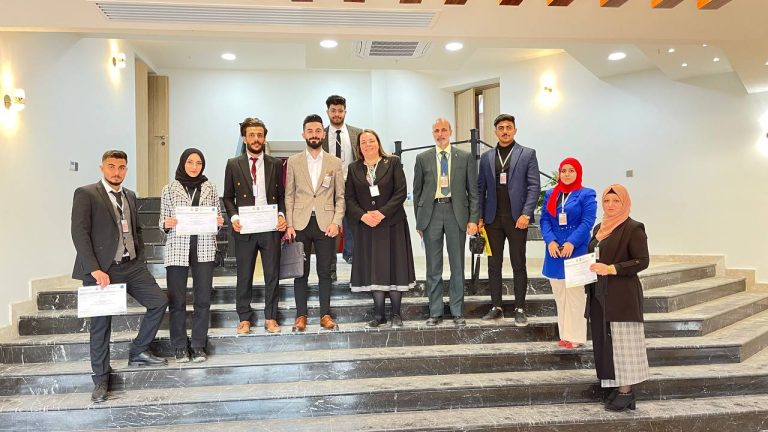
What came out?
Our Workshop: SDG13A - Taking Climate-Action! Limiting climate-change drivers and reducing climate-change effects in Iraq
What was the workshop about?
“Taking Climate-Action!” was the title for the workshop on SDG13A. Students discussed causes of climate change such as environmental pollution, acidic rain and radiation hazards as well as effects of climate change on natural and human life were discussed. For Mosul, several threats were identified such as unprotected industry and waste areas, lack of public transport system, dependence on oil heating and use of generators, deforestation and lack of public awareness. Clean Energy for Mosul! The students also identified the extensive use of oil generators as one of the producers of high carbon dioxide emissions in Mosul. They propose the construction of a hydro electronic power plant at the conjunction of Tigris and Zab river as a cleaner energy solution.
Who was involved?
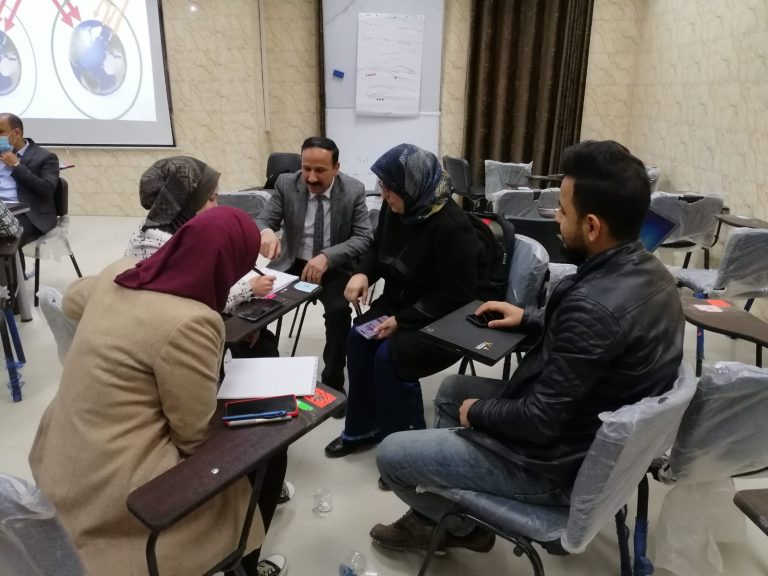
What came out?
Our Workshop: SDG14/15A - Plastic pollution: How can we stop this shocking global threat?
What was the workshop about?
Reducing pollution is the solution!
Workshop SDG15A&B investigated pollution in Mosul city and surrounding areas. The disappearance of green spaces, increasing deforestation and desertification, the large number of demolished buildings, uncoordinated random reconstruction efforts, littering, traffic and noise and pollution from generators were identified as pressing issues in Mosul affecting the well-being of inhabitants at large.
Establishing monitoring institutions with effective digital monitoring systems, developing cultural sensitive education and training programs to raise awareness in the population, initiating community based participatory planning processes to tackle pollution problems in the local, developing and planning sustainable waste, transport and energy solutions for the city at large while preserving the existing ecosystems and cultural heritage of the city.
Who was involved?
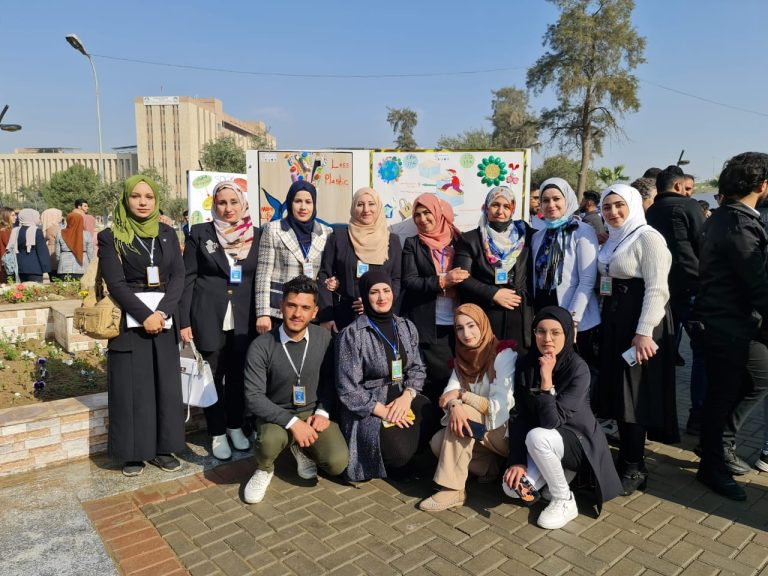
What came out?
Our Workshop: SDG15B - Towards a clear view: Tackling visual pollution of Mosul´s Landscape
What was the workshop about?
Workshop SDG15B investigated manifestations of visual pollution in Mosul city and surrounding areas. Visual pollution may limit the aesthetic view of cities and landscapes therefore have a severe impact on our life and nature. It is to a large degree caused in human behaviour and therefore can be tackled by raising awareness and setting political frameworks that may limit the problem of visual pollution. In our workshop, students investigated the manifestations of visual pollution in the Mosul city and surrounding areas in terms of its severity and to measure the extent to which the population is aware of this problem.
Who was involved?
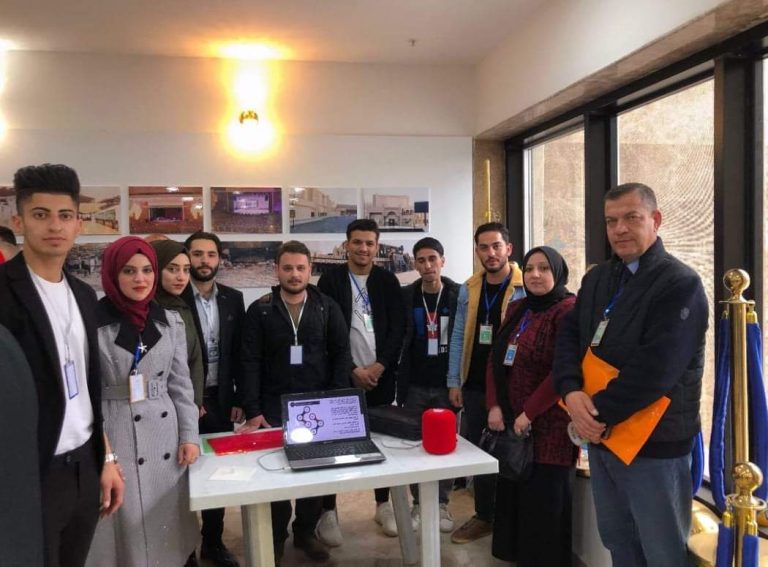
What came out?
Our Workshop: SDG16A - Environmental security and sustainable peace in Mosul: Challenges and opportunities
What was the workshop about?
United Nations’ SDG 16 sets guidelines for promoting peaceful and inclusive societies for sustainable development. In our workshop, we focused on security as the foundation for peaceful coexistence. We expanded the perspective from traditional understandings of the security concept to non-traditional conceptualizations including environmental security, which also involves environmental aspects such considering climate change related risks. Focusing on the situation in the city of Mosul, in this phase of post conflict transition, we discussed the potential of such a broad security concept in terms of these questions: What are the environmental realities in Mosul after the war? What are the strategic challenges for environmental security in Mosul? Moreover, what are the opportunities for developing environmental security in the city of Mosul? In our four-day workshop, we learned about and discussed these issues, developed ideas with us that were then presented and discussed on the final conference day. The workshop was open for students of all disciplines and especially relevant for students of law, social sciences, sociology, political science, philosophy, education, psychology and related disciplines.
Who was involved?
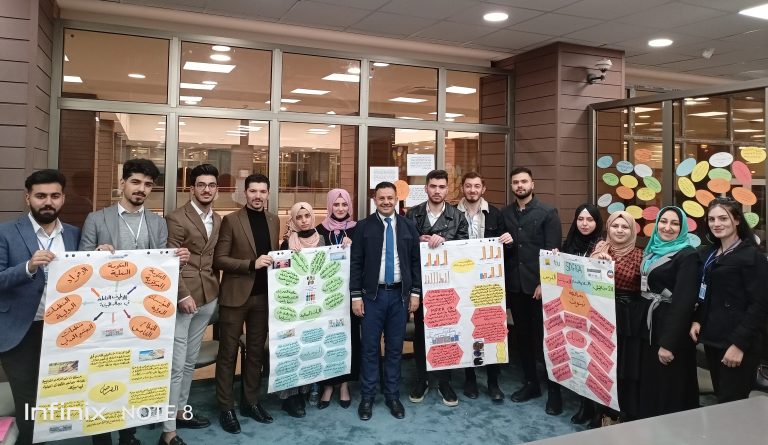
What came out?
Our Workshop: SDG16C - The concept of interest-based negotiation in adversarial situations negotiation and mediation in civil cases
What was the workshop about?
“We are all peace makers!” is the core message of the RESI Conference workshop SDG16C on fundamental elements of conflict resolution aiming to explore the concept and tools of negotiating and mediating in civil conflicts. The focus of this workshop was not on large-scale solutions, but rather on dealing with micro-conflicts in the family, neighbourhood and in work and business life. Conflict analysis were discussed and applied, which should enable every participant to better cope with personal conflict challenges in everyday life in the future. Furthermore, own negotiation skills were reflected and meditative techniques applied in role-playing games. Participants concluded that applying both the theoretical knowledge and skills in solving daily conflicts, definitely would lead to peacebuilding and promoting the coexistence in Mosul society.
Who was involved?
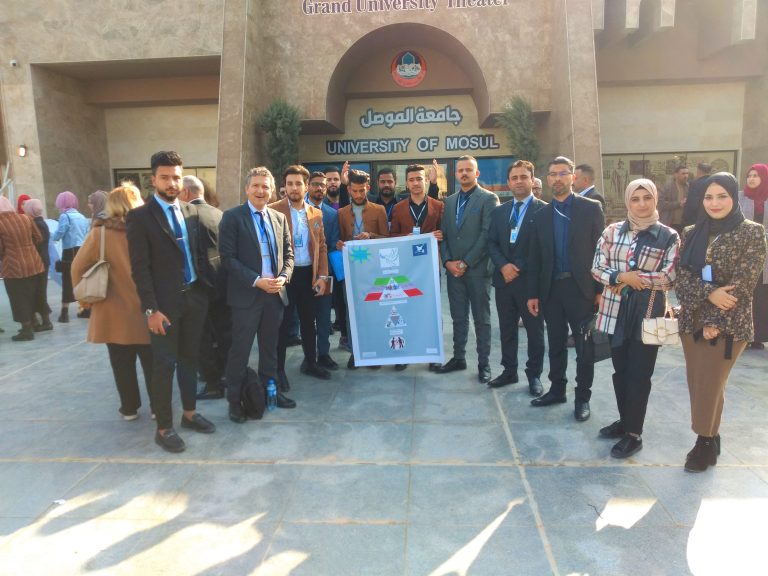
What came out?
Our Workshop: SDG16D - Global citizenship for sustainable peace?
What was the workshop about?
In RESI conference workshop SDG16D current international peace efforts and more sustainable alternatives were discussed. Especially the role of education in the prevention of violent extremism and its relation to other aspects of relevance for peacebuilding efforts. Students reflected and formulated their own local concepts of peace. There were numerous ideas for the concrete implementation of a local peace in Mosul, such as the attempt to integrate families of fallen IS fighters who are still being held or educational programs to promote peaceful coexistence. They concluded: “Only local peace is sustainable peace.”
Who was involved?
